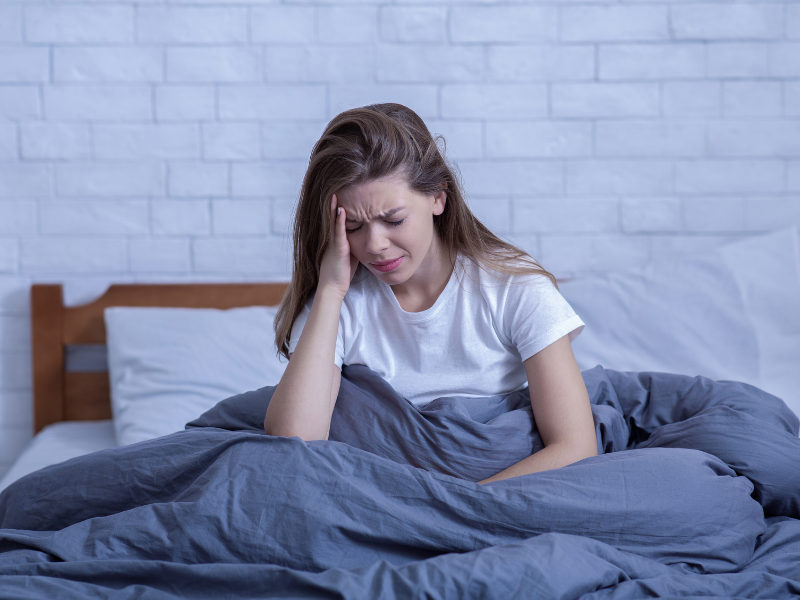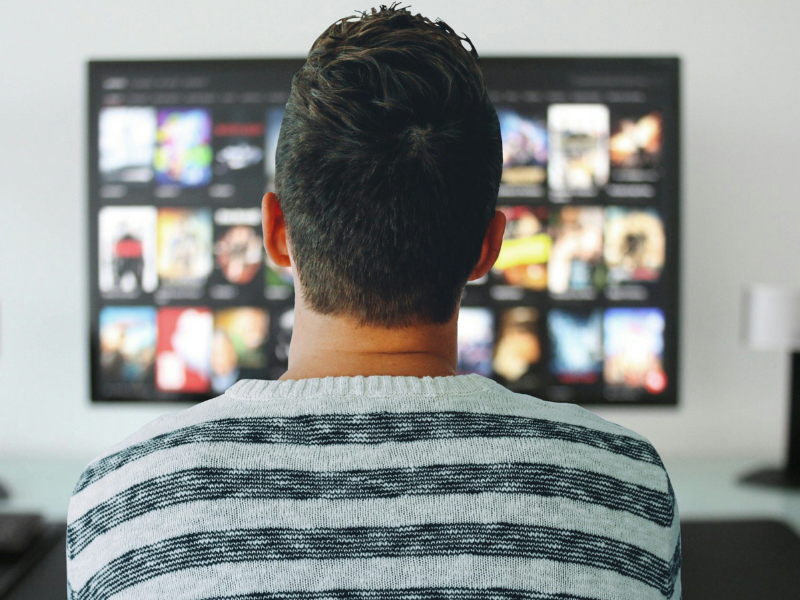


For your well-being, having a good night’s sleep is crucial, just like a healthy diet and maintaining a good workout routine. However, over 80% of individuals report having trouble sleeping with PTSD, making it one of the condition’s most prevalent symptoms. Hyperarousal and stress are the two main PTSD symptoms that keep people from falling asleep. Your body is therefore prepared to be on constant alert. It behaves as though a threat always exists nearby and that it must be prepared to either fight or flee. Are you wondering what can help in this situation? Well, we have tips for you to enjoy a good night’s sleep and wake up fresh.
You might sleep better if you make certain modifications if you have trouble going to sleep or remaining asleep at night. Numerous changes are tiny but have a good effect. If you want to observe improvements after making modifications, stick with them for several nights.
So, let’s dig in and explore these modifications.

It can occasionally be beneficial to temporarily remove yourself from your usual environment to improve sleep with PTSD. Many of my patients who suffer from sleeplessness brought on by PTSD claim that they sleep better when they are on vacation and away from their usual triggers and routines.
Therefore, try going camping, taking a cruise, visiting a cousin, or even just try sleeping somewhere new. Your stress levels and sleep quality can be significantly affected by just removing yourself from the usual triggers. But make sure that your room should be a place where you feel secure and free from any triggers that could make you remember a traumatic event.
Rushing in the morning or evening might increase feelings of stress and make it more difficult for veterans with PTSD to fall asleep. You shouldn’t feel deprived of sleep because of a lack of time. Plan ample time for rest, allowing more time if you frequently have trouble falling asleep or remaining asleep all night. Your system uses this predetermined period to start producing hormones, starting your metabolism, and starting other biological processes that follow predictable cycles. You can avoid jet lag by rising at the same time every day.
Turning off the stressors and activities of the day an hour or two before bed is crucial because PTSD might make you more anxious and alert. Have this time of day something to anticipate. Watch some entertaining, upbeat television. Read inspiring literature. Find something you enjoy doing as a pastime, such as solving riddles or creating.
Distracting stimuli can assist you in blocking negative ideas long sufficient for your mind to drift off to sleep. Despite experts’ recommendations to avoid watching TV before bed, many of my PTSD patients find it difficult to get to sleep without the temptation of late-night entertainment or their smartphone.
On the other hand, with electronic gadgets, blue light works as a stimulant and interferes with falling asleep. Reading or listening to audiobooks on your smartphone is a preferred substitute. Although they might not be as efficient as white noise or other nature sounds in reducing overthinking, natural sounds like ocean waves can nevertheless be beneficial.

Many insomniacs attempt to make up for lost sleep by staying in bed longer. Unfortunately, staying in bed longer when you aren’t asleep makes your body less drowsy, decreasing your likelihood of falling asleep and heightening your aggravation. This merely makes the sleeplessness worse, resulting in additional frustration and time spent in bed. It’s crucial to pay attention to your body’s drowsiness cues. When you are drowsy, you have trouble keeping your eyes open or have the impression that you may soon fall asleep. This is not the same as being worn out, exhausted, or tired. Many insomniacs are energized but exhausted.
App developers have expanded their focus on wellness over the past ten years beyond fitness and nutrition to include topics like awareness, mood, and how much sleep we get. There are a number of apps like ShutEye that can help you get to sleep with PTSD, stay asleep, and monitor your sleeping patterns have skyrocketed. Numerous recent sleep aids function something like a digital sleep therapist. Just as with a real-life sleep medicine therapist, you have a weekly check-in using the app. Participants get new sleep-improvement techniques every week. These apps are designed to consolidate the advantages of working with a behavioral sleep counselor into a self-help tool. So, find the best one for you. Applications like Shuteye are meant to reduce jet lag, encourage relaxation, or play relaxing sounds or white noise to aid with sleep.
Actively burning off some of that extra energy throughout the day will make you feel more peaceful and capable of sleeping. Sleep quality and duration have been shown to improve with regular physical activity. You need to work out every day because of the hyperarousal brought on by PTSD because it takes time for the advantages to accumulate. Exercise is incredibly crucial the day following a poor night’s sleep when you could feel drained and unmotivated.
There are undoubtedly additional advantages to exercise for both physical and emotional well-being. Many of the people I work with who have PTSD say that going to the gym gives them some much-needed time to themselves when all they have to think about is how many calories they’re burning, etc.

Although we cannot make ourselves fall asleep, we can facilitate the process and give ourselves the best chance to do so. Sleep is crucial for lowering our levels of anxiety and despair. You can aid in your trauma healing by making changes to your sleeping patterns. Even with these modifications, it could still take some time for the body to adapt. But don’t lose hope and keep going since all is well when it ends well.
Benisek, A. (2024) Sleep Apnea: Everything You Need to Know [online]. https://www.webmd.com/sleep-disorders/sleep-apnea/sleep-apnea
Mayo Clinic (2022) Post-traumatic stress disorder (PTSD) [online]. https://www.mayoclinic.org/diseases-conditions/post-traumatic-stress-disorder/symptoms-causes/syc-20355967